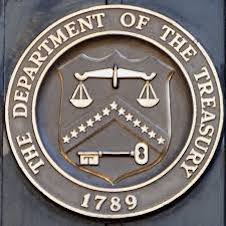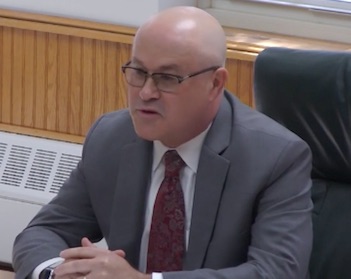BOE Votes Unanimously to Rescind Charitable Education Fund
- Category: Schools
- Published: Wednesday, 29 August 2018 23:19
- Laura Halligan
 Due to the U.S. Treasury’s recent efforts to block New York and other “blue states’” SALT workaround strategies, the Scarsdale Board of Education voted unanimously Wednesday to rescind the charitable education fund and related resolutions that promised to provide some tax relief to residents.
Due to the U.S. Treasury’s recent efforts to block New York and other “blue states’” SALT workaround strategies, the Scarsdale Board of Education voted unanimously Wednesday to rescind the charitable education fund and related resolutions that promised to provide some tax relief to residents.
Last Thursday, the Treasury issued proposed regulations limiting the rights of taxpayers to claim charitable deductions for contributions when they expect to receive state or local tax credits in return. According to Daniel Petigrow, counsel for the Scarsdale School District, “These regulations and the department’s substantive analysis in support of those regulations… clarify that property tax credits received in exchange for contributions are a quid pro quo.” He continued, “(They) have ramifications for the actions taken by the board of education… when it established a charitable education fund for the purpose of receiving contributions from taxpayers in return for a credit towards their school tax liability.”
In other words, creating the charitable donation fund in order to provide residents with tax relief will not be permitted, since the primary purpose of contributing to the fund is to gain a credit, rather than making a donation without any expectation of a reward.
“In its proposed regulations, the Treasury Department cited long-settled Supreme Court precedent that the presumption underlying a charitable deduction is that the contribution is made without any expectation… of a corresponding benefit…” said Petigrow. When taking this into account, tax credit for donations to the charitable education fund likely would be denied or reduced significantly.
A Short History Attorney Daniel Petigrow
Attorney Daniel Petigrow
As Scarsdale residents know, in December 2017, the state/local property tax credit was capped at $10,000 as part of the federal Tax Cuts and Jobs Act. In April of this year, in an effort to circumvent the cap, New York State authorized local governments to establish charitable giving/education funds and provide real property tax credits to taxpayers in exchange for their contribution, of up to 95 percent. In May, the New York State Department of Taxation and Finance clarified the state’s position on these funds and issued official documentation to be used in both acknowledging the contributions and claiming related tax credits.
However, in late May, the IRS issued a notice stating that it was skeptical of the state’s legislative efforts to work around the tax cap, and it would issue regulations to address these efforts. Regardless, on July 10, shortly after Scarsdale Village established a charitable contributions fund, the board 1) created a charitable education fund effective September 1 (the earliest date school taxes may be collected, by NYS law); 2) authorized real property tax credits of up to 95 percent in exchange for contributions to the fund; and 3) established an inter-municipal agreement with Scarsdale Village, designating the village treasurer as administrator of the fund for property owners within Scarsdale Village. (The school district treasurer would administer the fund for affected property owners in Mamaroneck.)
The Upshot
“When you adopted these resolutions… you stated that you could make no representations about the ability of residents to deduct the full 95 percent of the amount of payments to the fund as charitable contributions, “ stated Petigrow. “We believe that the Treasury Department’s proposed regulations, as well as the analysis for issuing them, have eroded the board’s basis for making no representations about their deductibility. Therefore, we believe it’s clear that you need to reconsider your prior action in creating the fund.”
Of particular concern to Pettigrew was that the New York State contribution acknowledgement form includes “a statement in which the official responsible for administering the fund and issuing the credit represent(s) that no goods or services were provided in exchange for the donation.” He went on, “In its analysis, the Treasury Department identified… what is a good and service, and the regulation states that it includes cash, property, services, benefits and privileges.” Since the tax credit can be considered a benefit, Petigrow said it would be a “material misrepresentation for the school-designated agent to complete the donor acknowledgement form, and could expose the board of education to liability.”
After Pettigrew’s presentation, Scarsdale Board of Education President Scott Silberfein solicited comments from those in attendance. Board Member Alison Singer began by asking why the first $10,000 (a homeowner may deduct) isn’t subject to the “goods and services” rule. “It seems that any deduction would violate the quid pro quo law?” Petigrow responded, “The $10,000 (limit) is a different part of the provision of the federal tax code… One section (of the code) has to do with charitable contribution… and for that section, the Treasury Department has said there cannot be a quid pro quo... A different provision (applies to) the state and local (property tax) deduction you get on your tax form.”
Board Member William Natbony followed, “If a taxpayer donates $5,000 to a not-for-profit organization as a charitable deduction with the intent of taking that $5,000 and recording it as a deduction, and getting a charitable deduction on their tax return, in essence, this is the same benefit…. I don’t see the consistency that I’m looking for…” Petigrow replied, “When you write a check for your (school) tax… it forms the basis of the operating revenue that a school district needs… That’s different from someone who donates goods or services to the district… out of the goodness of the donor’s heart. They’re not getting any recognized benefit for it.”
What’s Next?
The Treasury Department’s proposal is not set yet; it will be subject to comments in the coming weeks and may be reviewed at a public hearing before being finalized. In addition, Scarsdale Schools Superintendent Thomas Hagerman reported that, “(New York State Assemblywoman) Amy Paulin has reached out to a couple of us; they’re trying to push on this issue by finding folks within the community who wish to join a larger lawsuit. They do have a firm, Baker McKenzie, the… largest law firm in the country, that has agreed to take this on as a case.” He continued, “So, there was a question about whether or not a suspension, rather than a full recommendation, might be possible. Or, if we keep either option open, even if we decide to revoke it today, whether or not we can pursue this at a later time, if it feels like there’s some traction in the lawsuit; we might have a different outcome.”
Silberfein followed up by saying, “If we choose, ultimately, to revoke it today, is there anything that would stop us from going through and establishing the charitable fund in the future?” Petigrow said, “The New York State legislation is still on the books… that hasn’t been challenged… So if you were to revoke the actions that you previously took and… there is different… guidance or court decisions that changed the calculus, then I do think the board could, in the future do that. But, based on the regulations issued, although not finalized… there’s too much legal exposure for the board to continue on charting that course now.” Natbony later asked about the feasibility of suspending a decision and keeping the fund open and Petigrow answered, “The idea behind resolutions is to have them take effect at a operative date. To have them sit out there in an ambiguous state is not in the interest of the board… I don’t think there’s a legal impediment; it’s more a practical one... Our recommendation is that you do rescind it. It is a clearer message that (states), based on what we know now, we’re not in a position to do (this).”
Natbony then stated, “You mention the risk of liability… We’ve already made the representation to those who are putting money into such a fund that we make no representation and take no position on whether it will be deductible or not. Essentially, saying to the taxpayer, it’s your risk; we’re doing this as an accommodation… to allow you to do it, not knowing what the ultimate result will be. How does that change and where is the increased risk for the board, especially given the fact that these are only proposed regulations at this point?” Petigrow replied, “The increased risk stems from the analysis of the Treasury Department in which they cited long-standing Supreme Court precedent and cited existing regulation that a credit in exchange for the donation would constitute a benefit… There are inherent risks in the board proceeding in light of the regulations that are proposed.”
Board Member Chris Morin followed, “I think this was a really important issue… Loss of deductibility (on school taxes) is over $50 million of impact to residents. So, I’m really happy we undertook this and took, literally, the most aggressive approach in the state in looking out for our taxpayers.” He went on, “I appreciate all your advice and I think we all knew where this was headed, but we wanted to take the best shot. Now we know there’s no trace of ambiguity left and I think we have to follow your advice.”
Pam Fuehrer, Scarsdale Board of Education Vice President, wrapped up by saying, “I think the risk of the material misrepresentation by this officer and the board, in giving (taxpayers) this form that notes no goods or services were provided in exchange… is a clear contradiction and I think that risk is the stop for me.”
Taking Petigrow’s commentary into account, the board then voted to rescind the fund, the inter-municipal agreement with the village, and the real property tax credit.






